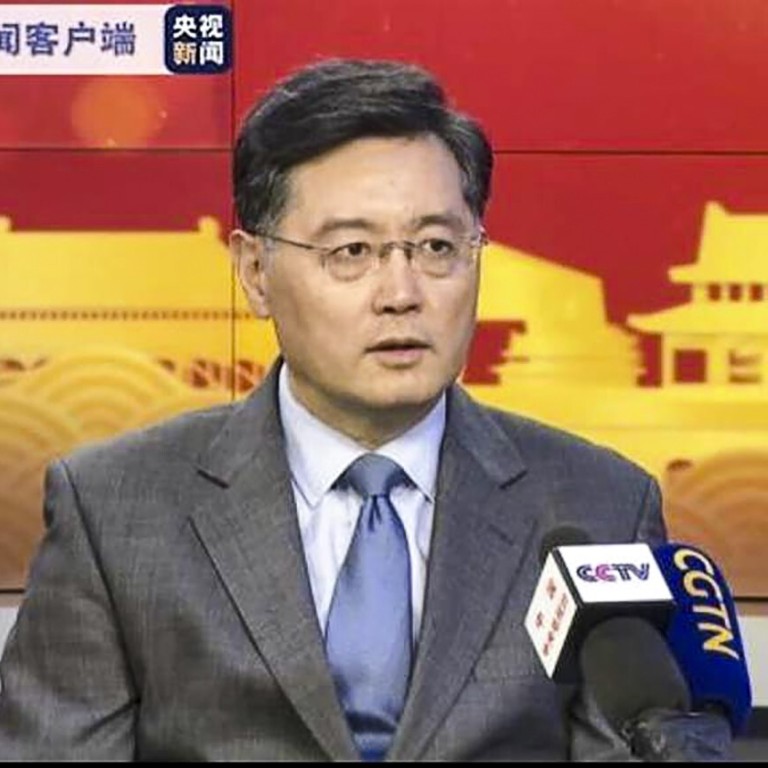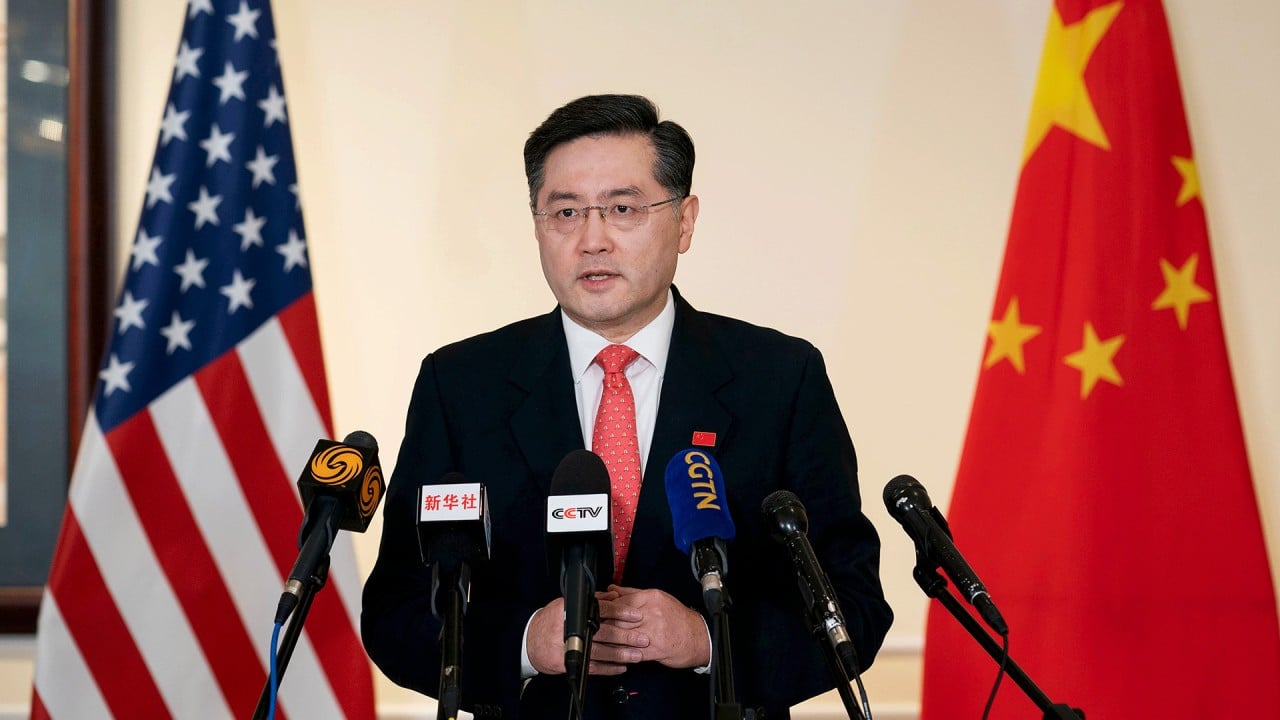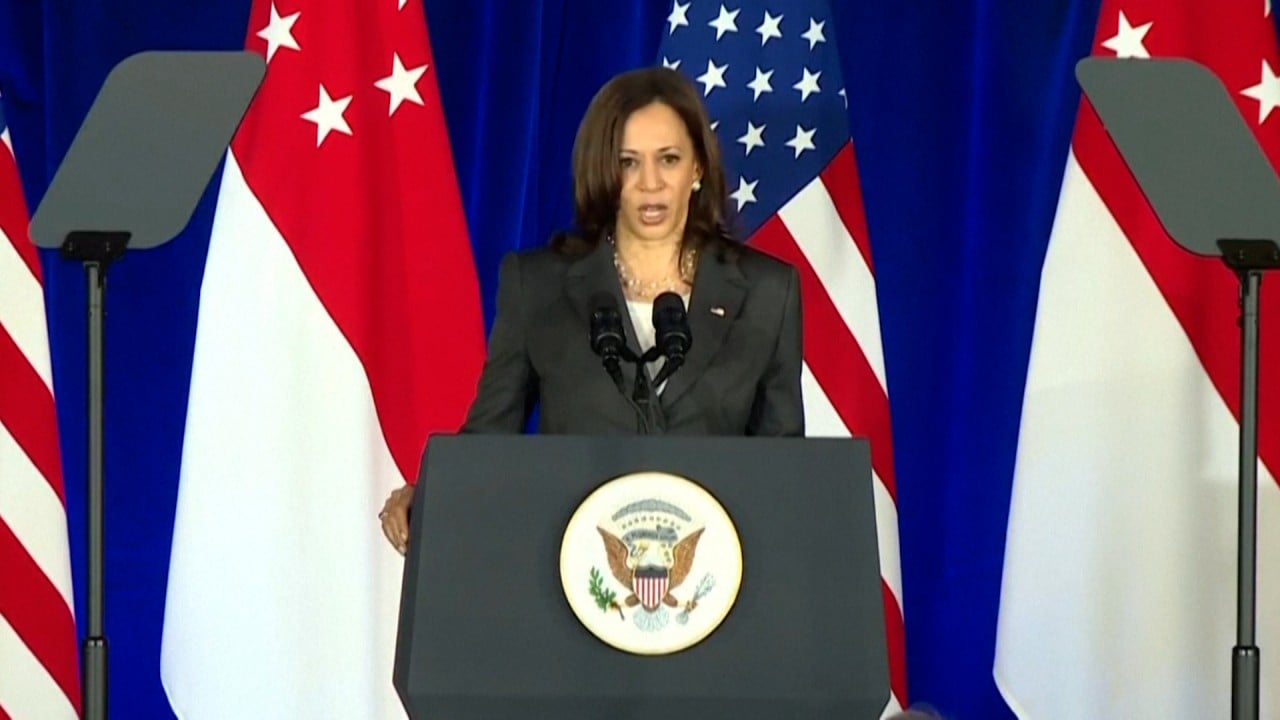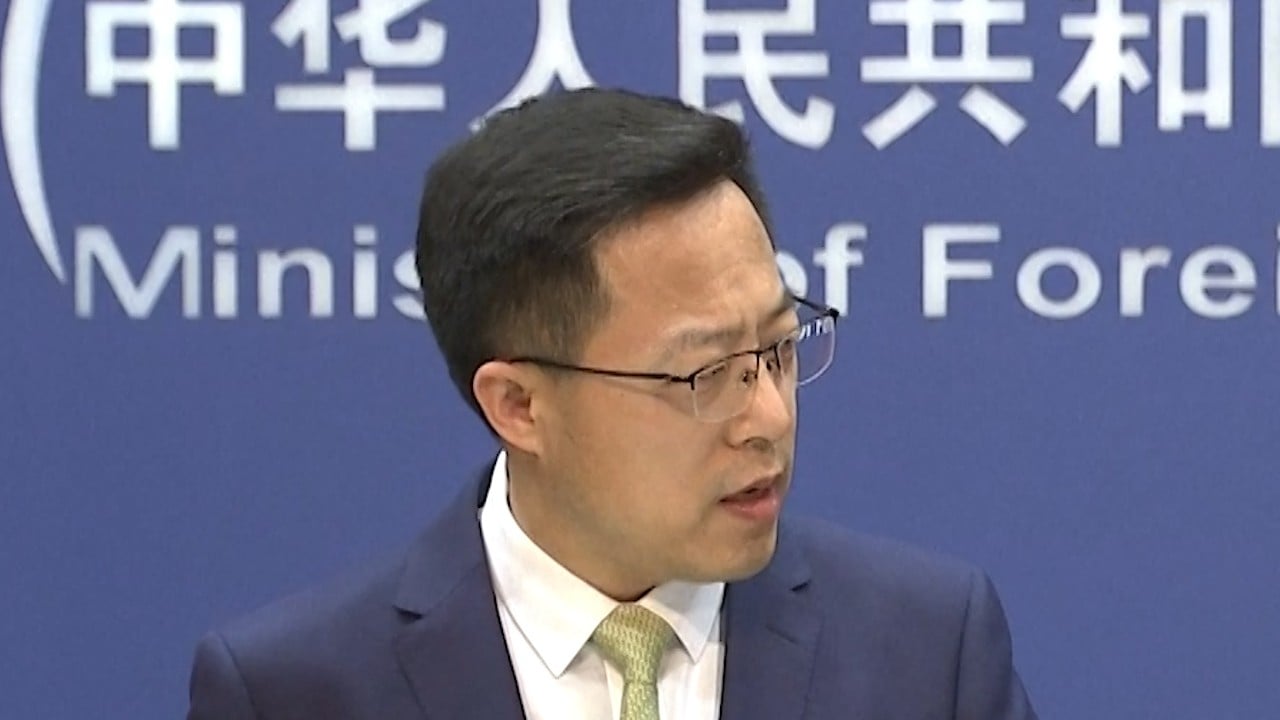
‘If we fight, we both lose’: Chinese ambassador to the US says ‘smoother’ road ahead is a priority
- Conciliatory comments from Qin Gang in a CGTN interview come amid a palpable easing of tensions following the release of Huawei’s Meng Wanzhou
- Hopes for further pragmatic cooperation are, however, tempered by the Biden administration’s demonstrated aim to contain China through regional alliances
“The current Sino-US relationship is still in a very difficult period and requires a lot of effort and work,” Qin said, according to a readout by the Chinese embassy on Saturday.
As the two countries are “looking for new ways to get along”, the top priority of his job was to make the process “less violent and unexpected but smoother and predictable”, he added.

02:20
China’s US envoy Qin Gang strikes conciliatory note on arrival in Washington
On Monday, US Trade Representative Katherine Tai is expected to speak at the Centre for Strategic and International Studies in Washington. Her speech would be the most detailed assessment of the Biden administration’s approach to trade with China as the world’s two largest economies move to address unresolved issues.

01:19
US Vice-President Kamala Harris: China continues to ‘coerce’ and ‘intimidate’ in South China Sea
In his interview with CGTN, which was conducted on Thursday but aired on Saturday, Qin reiterated the call for the two sides to accelerate efforts to put relations back on track as soon as possible.
He admitted that there has been “widespread misunderstanding” over China, but pledged to continue to get in touch with people from different sectors in the US. “The message is clear that if we cooperate, we both benefit, if we fight, we both lose.”
The White House said at the time that the two leaders also “discussed the responsibility of both nations to ensure competition [did] not veer into conflict”.
Australia getting nuclear subs via Aukus ‘ups risk of conflict near China’

01:19
After Quad summit discusses China threat, Beijing says ‘cliques’ drive wedge between countries
Chinese Foreign Minister Wang Yi has accused the grouping of “provoking rivalry in the region and engaging in a geopolitical zero-sum game”.
On Saturday, Ely Ratner, the US assistant secretary of defence for Indo-Pacific security affairs, spoke to Japan’s director general for defence policy Kazuo Masuda and South Korea’s deputy minister for national defence policy Kim Man-gi in a trilateral call among the allies. Their discussions included North Korea’s “nuclear and missile threat, regional security, and substantive ways to strengthen trilateral security cooperation”, according to the Pentagon.

